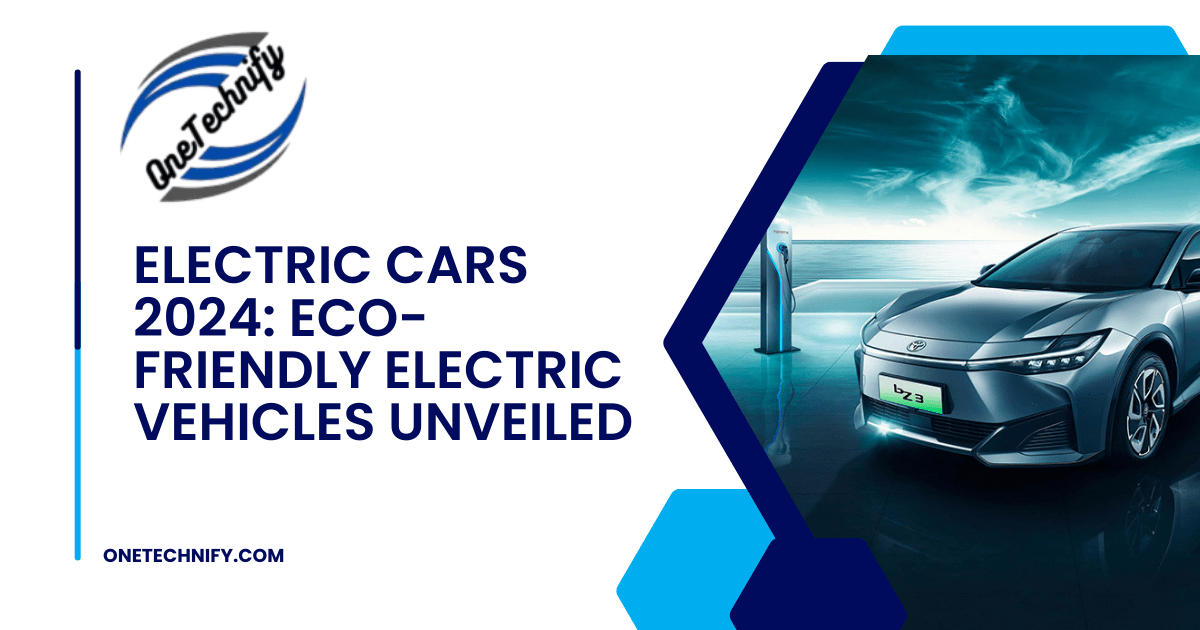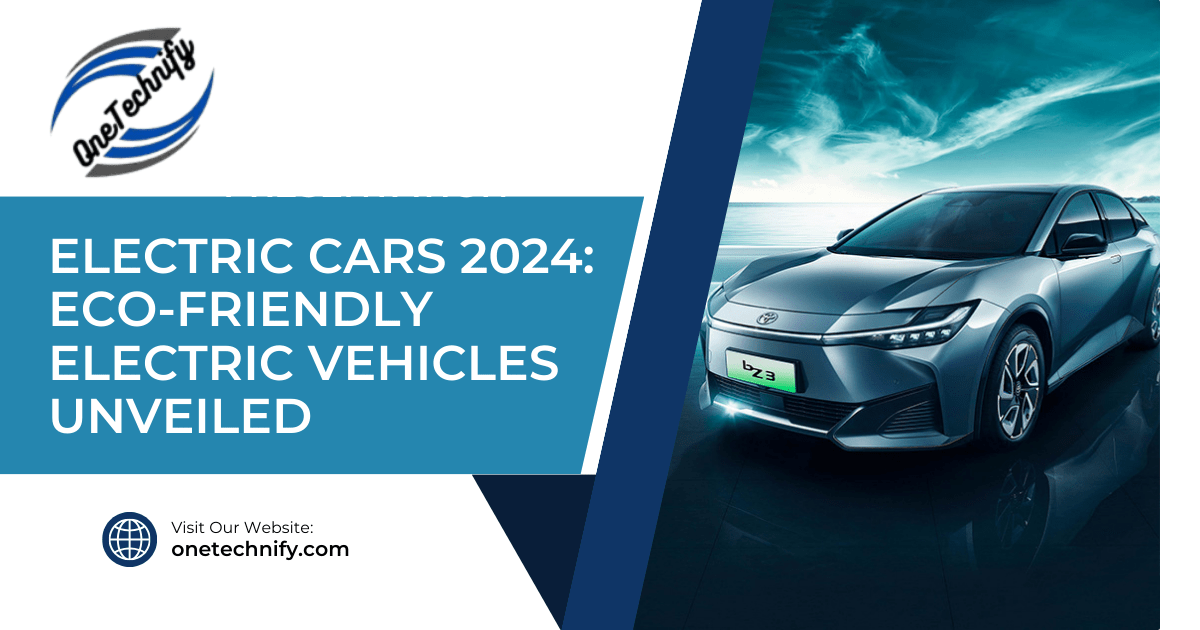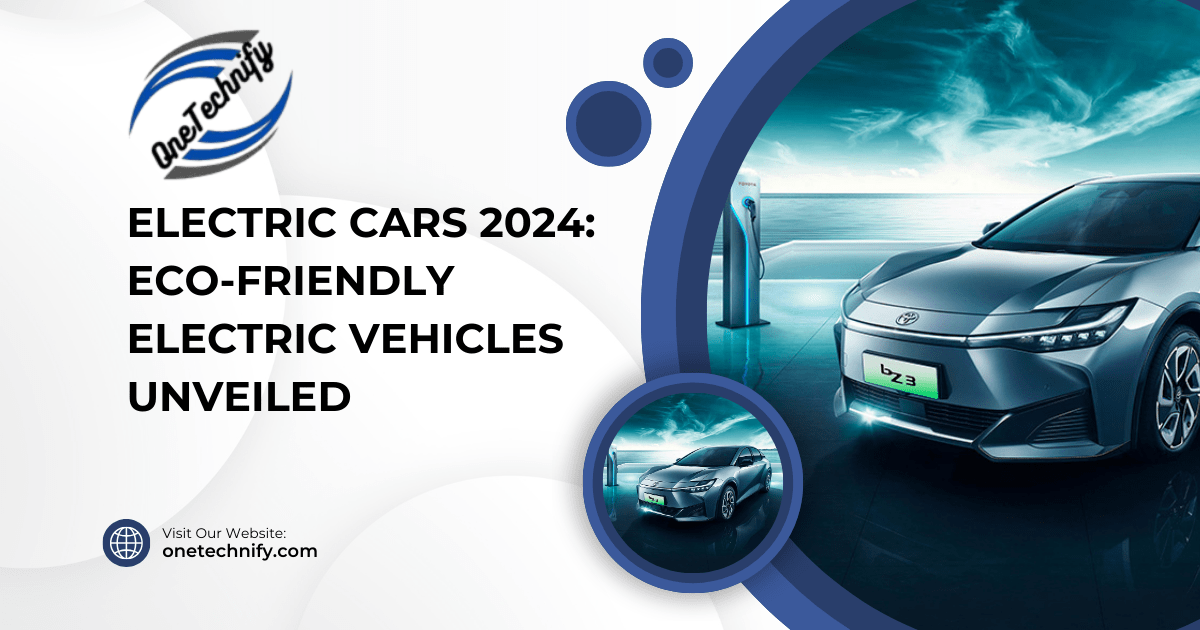Electric cars – the future of transportation or just a passing trend? Are you ready to dive into the electrifying world of eco-friendly electric vehicles that are reshaping the automotive industry? From their environmental benefits to cutting-edge technology, electric cars have sparked a revolution on wheels. In this post, we’ll explore the ins and outs of electric cars, debunk common myths, and delve into their impact on our daily lives. Get ready to rev up your knowledge about these sleek and silent marvels of modern engineering, electric motors, and electric vehicles.
Table of Contents
The Rise of Electric Cars in the Automotive Industry
Sustainable Transportation
Electric cars, such as Tesla vehicles, are at the forefront of a global shift towards sustainable transportation. The increasing awareness of environmental issues has led to a growing demand for vehicles that produce fewer emissions. Electric cars, powered by electricity, offer a cleaner and more eco-friendly alternative to traditional gasoline-powered vehicles, making them an attractive option for environmentally conscious consumers.
The development and integration of advanced battery technology have been pivotal in driving the popularity of electric cars. These advancements, including battery technology, have significantly improved the efficiency and range of electric vehicles, addressing one of the primary concerns among potential buyers – range anxiety. With longer-lasting batteries and faster charging capabilities, electric vehicles have become more practical for everyday use, further contributing to their rising prominence in the automotive industry.
Government Initiatives
Governments around the world are actively promoting the adoption of electric vehicles, battery through various initiatives and incentives. This includes tax credits, rebates, and infrastructure investments aimed at supporting the widespread implementation of electric car technologies. By offering financial incentives and establishing charging infrastructure networks, governments are encouraging both automakers and consumers to embrace electric mobility as part of a larger strategy to reduce carbon emissions from transportation.
In addition to governmental support, many local authorities are implementing policies that restrict or penalize conventional internal combustion engine (ICE) vehicles in urban areas while providing preferential treatment for electric cars, such as access to dedicated lanes or reduced parking fees.
Previewing the Most Anticipated Electric Cars of 2024
Cutting-edge Technologies
Electric vehicles are rapidly evolving, and the near future promises some truly groundbreaking advancements in battery technology. Imagine supercruise capabilities that allow mini-electric vehicles to navigate highways autonomously, providing a glimpse into the future of transportation. These innovative electric vehicles are expected to feature state-of-the-art infotainment systems with expansive-inch screens, offering seamless connectivity and entertainment for passengers.
The upcoming 2024 electric vehicle models are set to redefine speed limits with their remarkable top speeds. These cars will not only be environmentally friendly but also deliver an exhilarating driving experience, showcasing the impressive performance potential of electric powertrains.
With these cutting-edge features and technologies on the horizon, it’s no wonder that there is so much excitement surrounding the impending release of 2024 electric cars.
Anticipated Models
Enthusiasts can look forward to an array of highly anticipated electric vehicle models poised for release in 2024. For instance, leading automotive manufacturers such as Tesla, Ford, and Chevrolet have been generating buzz with their upcoming electric vehicles. The anticipation is palpable as consumers eagerly await the unveiling of these next-generation electric vehicles designed to elevate driving experiences while reducing environmental impact.
Comprehensive List of New Electric Cars Arriving in 2024
Range and Pricing
Electric cars (EV) are becoming increasingly popular due to their environmentally friendly nature. In 2024, consumers can expect a wide range of new electric vehicles (EVs) with varying features, including impressive ranges and diverse pricing options. The upcoming electric car “EcoDrive” model boasts a remarkable range of 350 miles on a single charge, making it an attractive option for long-distance travelers. On the other hand, the “CitySpark” offers a more affordable price point without compromising on essential features.
The diversity in range and pricing caters to different consumer needs. While some individuals prioritize extensive mileage for frequent travels or road trips, others may be more concerned about affordability. With such varied offerings, consumers have the flexibility to choose an electric vehicle that aligns with their specific requirements and budget.
Key Specs
In addition to range and pricing considerations, prospective buyers will also have access to detailed insights into each new electric vehicle’s key specifications. These may include factors such as battery capacity, charging timeframes, horsepower output, safety features like autonomous driving capabilities or advanced collision avoidance systems for electric vehicles.
Design and Innovation in 2024 Electric Car Releases

Sustainable Materials
Electric vehicles in 2024 are incorporating sustainable materials to reduce environmental impact. For instance, some car manufacturers are using recycled plastics and natural fibers for interior components. This not only lessens the reliance on new resources but also minimizes the carbon footprint of these vehicles.
Moreover, companies are focusing on developing innovative battery technologies for electric vehicles that use sustainable materials, such as cobalt-free batteries. By doing so, electric car manufacturers contribute to a cleaner and more environmentally friendly automotive industry.
Aerodynamic Enhancements
The upcoming electric vehicle models in 2024 prioritize aerodynamic enhancements to improve efficiency and range. Car brands are designing sleeker exteriors with reduced drag coefficients to enhance performance and maximize driving range per charge. These aerodynamic improvements play a crucial role in optimizing energy consumption while maintaining high-speed stability for electric vehicles.
In addition to this, adaptive air suspension systems are being integrated into electric cars for enhanced ride comfort and improved aerodynamics at varying speeds. The inclusion of electric vehicles showcases the commitment of automakers to creating cutting-edge designs that prioritize both sustainability and performance.
Performance Metrics of Upcoming 2024 EV Models
Acceleration
The acceleration capabilities of upcoming 2024 electric vehicles are truly impressive. These cars can go from 0 to 60 mph in just a matter of seconds, showcasing the remarkable power and efficiency of their electric motors. For example, the new Tesla Model X car can reach 60 mph in under 2.5 seconds, setting a new standard for acceleration in the electric vehicle market.
Electric cars are also pushing boundaries. With advancements in motor efficiency and energy regeneration systems, these vehicles can achieve top speeds that rival those of traditional gasoline-powered cars. The Lucid Air Dream Edition vehicle, for instance, boasts a top speed exceeding 160 mph, demonstrating the exceptional performance potential of electric propulsion systems.
Range Capabilities
One key area where significant progress has been made is in the range capabilities of upcoming electric car models. Thanks to advancements in car battery technology and aerodynamics, these vehicles can now travel hundreds of miles on a single charge. Some electric car models set to be released in 2024 will offer ranges well beyond 300 miles on a full charge, providing drivers with unprecedented freedom and convenience.
Comparing 2024 Electric Cars with Hybrid and Gas-Powered Vehicles
Environmental Impact
Electric cars, such as the GMC Hummer EV, offer significant environmental benefits over traditional gas-powered vehicles. Electric vehicles produce zero tailpipe emissions, reducing air pollution and combating climate change. In contrast, gasoline engine vehicles emit harmful pollutants like carbon dioxide and nitrogen oxides, contributing to smog and global warming.
Hybrid cars also provide some environmental advantages by combining an electric motor with a gas engine and vehicle. Pure electric vehicles like the GMC Hummer EV have a more substantial impact in reducing greenhouse gas emissions.
Cost Savings
Electric cars outshine both hybrids and gas-powered vehicles. With lower maintenance costs due to fewer moving parts compared to internal combustion engines, electric vehicle save drivers money in the long run. They are more energy-efficient than their vehicle counterparts since electricity is generally cheaper than gasoline per mile driven.
On the other hand, hybrid vehicles offer some cost-saving benefits through improved fuel economy but may still require regular maintenance of their gasoline engines.
Consumer Expectations for Electric Vehicles in 2024
Enhanced Charging Infrastructure
Electric vehicle customers in 2024 are expecting a significant improvement in charging infrastructure. They want more accessible and reliable charging stations for electric vehicles, reducing range anxiety. The demand for ppe chargers at workplaces, shopping centers, and public parking areas, and car charging stations is on the rise.
The future of electric cars also involves faster charging times. Customers anticipate advancements that will reduce the time it takes to charge their vehicles significantly. This means quicker pit stops during long journeys and increased convenience for everyday use of electric vehicles.
Increased Range and Affordability
In 2024, consumers are looking forward to electric vehicles with improved range without compromising affordability. They seek vehicles that can travel longer distances on a single charge while remaining cost-effective. For instance, customers expect to see electric vehicles offering over 300 miles of range at a starting price comparable to traditional gasoline-powered cars.
Moreover, prospective buyers are eyeing electric vehicles with advanced features like improved connectivity, allowing seamless integration with smart devices and enhanced user experience. There’s an increasing interest in autonomous driving capabilities as part of the overall package offered by electric vehicle manufacturers.
Environmental Impact of the 2024 Electric Car Lineup

Greenhouse Gas Emissions
The widespread adoption of electric vehicles can lead to a significant reduction in greenhouse gas emissions. Unlike traditional vehicles that run on gasoline or diesel, electric cars produce zero tailpipe emissions, which helps combat climate change by reducing the amount of carbon dioxide and other pollutants released into the atmosphere. As more people switch to electric vehicles, there will be a noticeable decrease in air pollution and a positive impact on overall environmental quality.
Switching to Electric Cars:
- Reduces CO2 emissions
- Decreases air pollution
Air Quality and Public Health
One of the most compelling benefits of transitioning to electric vehicles is the positive impact on air quality and public health. By decreasing reliance on fossil fuels for transportation, electric cars help reduce harmful pollutants such as nitrogen oxides, particulate matter, volatile organic compounds, and vehicle. This shift not only improves local air quality but also has direct health benefits for individuals living in urban areas where traffic-related pollution is a significant concern.
Summary
You’ve just scratched the surface of the electric car revolution set to take 2024 by storm. From mind-blowing innovations in design and performance metrics to the environmental impact and consumer expectations, the future of electric vehicles is brighter than ever.

As you gear up for what’s to come, keep an eye out for these game-changing releases like electric vehicles and consider the positive impact your choice can make on the environment. Get ready to ride the wave of change and be part of a movement that’s driving us towards a more sustainable future with electric vehicles.
Frequently Asked Questions
Are electric cars more environmentally friendly than gas-powered vehicles?
Yes, electric cars are more environmentally friendly than gas-powered vehicles because they produce zero tailpipe emissions. This reduces air pollution and greenhouse gas emissions, contributing to a cleaner and healthier environment.
What are the key performance metrics of upcoming 2024 EV models?
The key performance metrics of upcoming 2024 EV models include acceleration, top speed, range per charge, charging time, and energy efficiency. These metrics determine the overall driving experience and practicality of electric vehicles in real-world scenarios.
How do consumer expectations for electric vehicles differ in 2024 compared to previous years?
In 2024, consumers expect advancements in car battery technology leading to longer ranges, faster charging times, improved affordability, and an expanded charging infrastructure. There is a growing demand for stylish designs and advanced features comparable to traditional gasoline cars.
How do new electric car releases focus on design and innovation in 2024?
New electric car releases in 2024 prioritize innovative designs that enhance aerodynamics for increased efficiency. They also integrate cutting-edge car technologies such as augmented reality displays and advanced driver-assistance systems to provide an unparalleled driving experience.
Why should I consider purchasing an electric car over a hybrid vehicle?
Electric cars offer the advantage of producing zero tailpipe emissions while providing a fully electric driving experience without relying on fossil fuels. They typically have lower maintenance costs due to fewer moving parts compared to hybrid vehicles.
